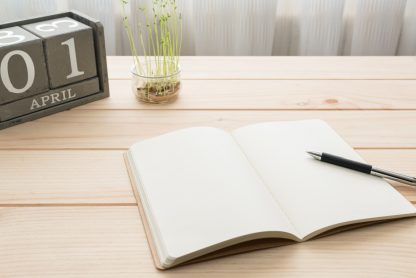If you’re feeling overwhelmed or stressed, it’s important to take a step back and reflect on your life. Weekly reflection questions are a great way to do this. These questions can help you evaluate your progress, set goals for the coming week, and plan actions to achieve those goals. By reflecting on your past week, you can gain insight into what worked well and what didn’t, and make adjustments accordingly.
Weekly reflection questions can cover a wide range of topics, from personal growth to career development. Some questions might focus on your relationships with others, while others might address your physical or mental health. Whatever your goals or concerns may be, there are reflection questions that can help you gain clarity and perspective. By taking a few minutes each week to reflect on your life, you can make positive changes and move closer to your goals.
Whether you’re a busy professional, a student, or a stay-at-home parent, weekly reflection questions can help you stay on track and make progress toward your goals. By setting aside time each week to reflect on your life, you can gain insight into what’s working well and what needs improvement. So why not give it a try? You might be surprised at how much you can learn about yourself and your life.
Purpose of Weekly Reflections
Weekly reflections are an excellent way to evaluate your progress, set personal goals, and plan action to achieve those goals. By taking the time to reflect on your week, you can identify patterns in your behavior, track your progress, and gain insights into your personal and professional growth.
Benefits of Self-Reflection
Self-reflection is an essential component of personal growth and development. It allows you to examine your thoughts, feelings, and behaviors, and gain clarity on your strengths, weaknesses, and areas for improvement. By reflecting on your experiences, you can learn from your mistakes, celebrate your successes, and make more informed decisions in the future.
Some benefits of self-reflection include:
- Increased self-awareness
- Improved decision-making skills
- Enhanced problem-solving abilities
- Greater emotional intelligence
- Increased creativity and innovation
- Improved relationships with others
Setting Personal Goals
Weekly reflections are an excellent opportunity to set personal goals and track your progress towards achieving them. By setting realistic and achievable goals, you can stay motivated, focused, and on track towards achieving your desired outcomes.
When setting personal goals, it’s essential to consider the following:
- Your strengths and weaknesses
- Your personal values and beliefs
- Your long-term aspirations
- Your current situation and resources
By taking the time to reflect on your goals each week, you can assess your progress, make any necessary adjustments, and stay on track towards achieving your desired outcomes.
In summary, weekly reflections are a valuable tool for personal growth and development. By taking the time to reflect on your experiences, set personal goals, and track your progress, you can gain valuable insights into your personal and professional growth and achieve your desired outcomes.
Guiding Questions
Weekly reflection questions are a great way to reflect on your past week, evaluate your progress, set goals for the new week, and plan action to achieve those goals. To help you get started, we have compiled a list of guiding questions that you can use to reflect on your week.
Professional Development
If you are looking to improve your professional skills, then these questions will help you reflect on your progress:
- What new skills did you learn this week?
- How did you apply your existing skills to your work?
- What challenges did you face, and how did you overcome them?
- What can you do to improve your skills next week?
Work-Life Balance
Maintaining a healthy work-life balance is crucial to your overall well-being. These questions will help you reflect on how you are balancing your work and personal life:
- Did you take breaks during the day to recharge?
- Did you make time for your hobbies or personal interests?
- Did you spend quality time with your family and friends?
- What can you do to improve your work-life balance next week?
Challenges and Solutions
Reflecting on the challenges you faced during the week can help you find solutions and improve your performance. Use these questions to reflect on your challenges and find solutions:
- What challenges did you face this week?
- How did you overcome those challenges?
- What can you do to prevent those challenges from happening again?
- What new challenges do you anticipate next week? How can you prepare for them?
By taking the time to reflect on your week, you can identify areas for improvement and set goals for the future. Use these guiding questions to help you reflect on your week and plan for a successful week ahead.
Reflection Techniques
When it comes to reflecting on your week, there are a variety of techniques you can use to gain insight and make progress. Here are a few popular methods to consider:
Journaling Methods
Journaling is a classic reflection technique that has been used for centuries. There are many different ways to journal, but the basic idea is to write down your thoughts and feelings about your week. Some people prefer to write free-form, while others use prompts to guide their writing.
One popular prompt is to write down three things you’re grateful for each day. This helps you focus on the positive aspects of your life and can boost your mood. Another prompt is to write down your accomplishments for the week, no matter how small they may seem. This helps you recognize your progress and build confidence.
Meditative Practices
Meditation is another powerful reflection technique that can help you gain clarity and reduce stress. There are many different types of meditation, but the basic idea is to focus your attention on your breath or a specific object, and let your thoughts come and go without judgment.
One simple meditation practice is to sit in a quiet place with your eyes closed, and focus on your breath for a few minutes. When your mind wanders, gently bring your attention back to your breath. This helps you develop mindfulness, which can improve your focus and reduce anxiety.
Another meditative practice is to visualize your ideal week. Imagine yourself going through each day feeling calm, confident, and productive. This helps you set intentions for the week ahead and can increase your motivation.
By using these reflection techniques, you can gain insight into your life and make positive changes. Experiment with different methods to find what works best for you.









